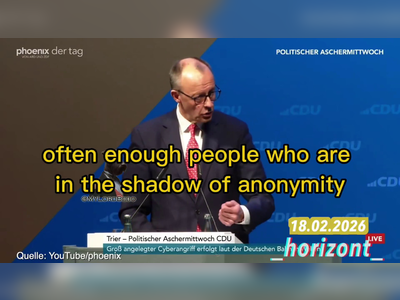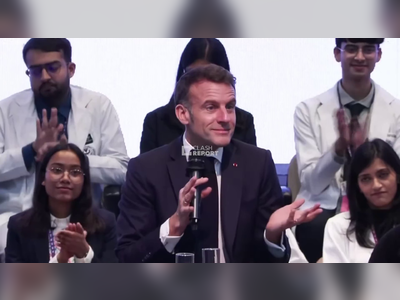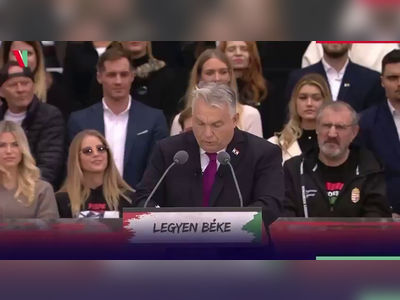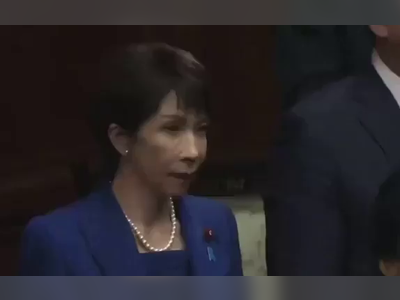YouGov Poll: AfD Gains Traction as Elections Loom, CDU and SPD See Decline
The AfD witnesses a surge in voter support while traditional parties face challenges, raising concerns among the electorate ahead of Germany’s federal election.
In a political landscape marked by shifting voter sentiments, recent polling results from the reputable research firm YouGov highlight significant changes in party support as Germany's federal elections approach.
According to the latest figures, the far-right Alternative for Germany (AfD), led by chancellor candidate Alice Weidel, has seen its support increase by two percentage points, reaching 21%.
This marks the party's strongest showing since January 2024.
Conversely, the Christian Democratic Union (CDU), although still leading the polls at 29%, has experienced a decline of one percentage point.
Meanwhile, the Social Democratic Party (SPD) continues on a downward trajectory, dropping two points to 16%, its lowest point amid growing discontent over its handling of the nation's economic challenges.
Notably, half of the surveyed constituents expressed a desire to see the SPD excluded from future government coalitions.
In terms of perceived economic competence, the SPD faces further challenges, ranking behind the AfD with only 11% of respondents recognizing it as the party most capable of managing economic affairs.
A notable 46% place the blame on the SPD for Germany's ongoing economic difficulties.
The survey also reveals broader public sentiments towards Germany's political future.
A substantial 39% of those surveyed expressed concern about the direction of the country's politics, with 15% feeling frustrated and 7% reporting feelings of anxiety.
In contrast, a minority remain optimistic, illustrating a nation divided in its outlook.
Adding another layer to the political discourse, Tesla CEO Elon Musk’s endorsement of the AfD has attracted attention.
Nearly 59% of respondents in a separate YouGov poll believe Musk's support has bolstered the AfD's standing.
Despite this, a majority perceive Musk's influence on the election as marginal, with many doubting his understanding of Germany's political nuances.
Other political parties are also feeling the effects of the shifting landscape.
The Greens have gained marginal traction, rising to 14%, while the BSW has slipped to 6%.
The Free Democratic Party (FDP) is polling at 5%, potentially securing its place in the Bundestag, whereas The Left party, with only 3%, risks losing its parliamentary representation.
These findings underscore the fluidity of voter allegiance and the unpredictable nature of polls, which are often influenced by declining party loyalties and last-minute voter decisions.
Ultimately, these polls represent a snapshot of public opinion during the survey period and should not be construed as definitive predictions of the election outcome.
The poll sampled 1,908 individuals between January 3rd and 6th, offering a timely glimpse into the evolving dynamics of German politics as the election date nears.
According to the latest figures, the far-right Alternative for Germany (AfD), led by chancellor candidate Alice Weidel, has seen its support increase by two percentage points, reaching 21%.
This marks the party's strongest showing since January 2024.
Conversely, the Christian Democratic Union (CDU), although still leading the polls at 29%, has experienced a decline of one percentage point.
Meanwhile, the Social Democratic Party (SPD) continues on a downward trajectory, dropping two points to 16%, its lowest point amid growing discontent over its handling of the nation's economic challenges.
Notably, half of the surveyed constituents expressed a desire to see the SPD excluded from future government coalitions.
In terms of perceived economic competence, the SPD faces further challenges, ranking behind the AfD with only 11% of respondents recognizing it as the party most capable of managing economic affairs.
A notable 46% place the blame on the SPD for Germany's ongoing economic difficulties.
The survey also reveals broader public sentiments towards Germany's political future.
A substantial 39% of those surveyed expressed concern about the direction of the country's politics, with 15% feeling frustrated and 7% reporting feelings of anxiety.
In contrast, a minority remain optimistic, illustrating a nation divided in its outlook.
Adding another layer to the political discourse, Tesla CEO Elon Musk’s endorsement of the AfD has attracted attention.
Nearly 59% of respondents in a separate YouGov poll believe Musk's support has bolstered the AfD's standing.
Despite this, a majority perceive Musk's influence on the election as marginal, with many doubting his understanding of Germany's political nuances.
Other political parties are also feeling the effects of the shifting landscape.
The Greens have gained marginal traction, rising to 14%, while the BSW has slipped to 6%.
The Free Democratic Party (FDP) is polling at 5%, potentially securing its place in the Bundestag, whereas The Left party, with only 3%, risks losing its parliamentary representation.
These findings underscore the fluidity of voter allegiance and the unpredictable nature of polls, which are often influenced by declining party loyalties and last-minute voter decisions.
Ultimately, these polls represent a snapshot of public opinion during the survey period and should not be construed as definitive predictions of the election outcome.
The poll sampled 1,908 individuals between January 3rd and 6th, offering a timely glimpse into the evolving dynamics of German politics as the election date nears.
Translation:
Translated by AI
AI Disclaimer: An advanced artificial intelligence (AI) system generated the content of this page on its own. This innovative technology conducts extensive research from a variety of reliable sources, performs rigorous fact-checking and verification, cleans up and balances biased or manipulated content, and presents a minimal factual summary that is just enough yet essential for you to function as an informed and educated citizen. Please keep in mind, however, that this system is an evolving technology, and as a result, the article may contain accidental inaccuracies or errors. We urge you to help us improve our site by reporting any inaccuracies you find using the "Contact Us" link at the bottom of this page. Your helpful feedback helps us improve our system and deliver more precise content. When you find an article of interest here, please look for the full and extensive coverage of this topic in traditional news sources, as they are written by professional journalists that we try to support, not replace. We appreciate your understanding and assistance.











